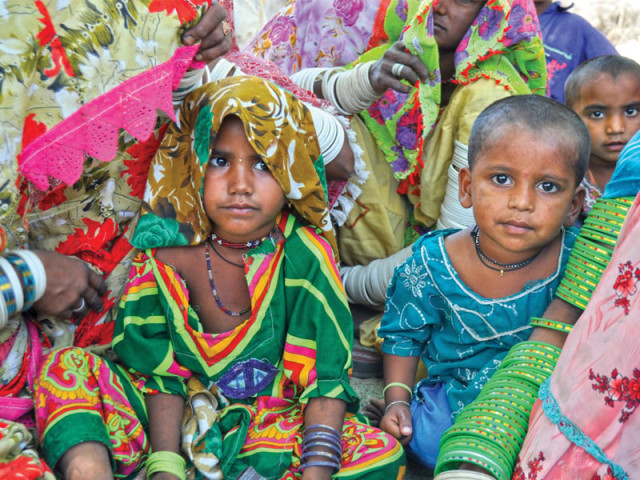Preventable deaths: Pakistan continues to lose 60,000 babies annually
Pakistan is the most dangerous country for babies to be born in, and terrorism is not the reason.

For Pakistan’s rural population, the major reason of infant mortality is the absence of functional health facilities, says Dr Ramesh Kumar. PHOTO: FARAHNAZ ZAHIDI
Pakistan’s human loss at the hands of neglect of public health is often trivialised when juxtaposed with causes that make headlines. But here’s a headline that should make us think: 60,000 Pakistani babies die every year on the first day of life. Pakistan has the highest first day mortality rate for babies in Asia, making it the most dangerous place in the region to be born, “Save the Children” says. The children’s aid agency launched its 14th annual State of the World’s Mothers report on May 7, revealing that 1-in-77 Pakistani babies die in their first day of life, making up 17 per cent of all under-five deaths in the country.
The report compares 176 countries around the globe, with regards to lives of mothers and their children. Pakistan ranked 139th on the best places to be a mother, based on factors such as mother’s health, education and economic status, as well as critical child indicators such as health and nutrition. It came in ahead of neighbours India and Afghanistan, but trailed behind Bangladesh, Nepal and Sri Lanka.
“The number of newborn deaths in Pakistan is unacceptably high. About 1-in-28 babies in Pakistan do not live past the first month of life, making Pakistan one of 10 countries accounting for nearly two-thirds of the three million newborn deaths that take place globally every year,” said David Skinner, country director for Save the Children in Pakistan. “Pakistan also has the highest number of stillborn babies in the region, at 1-in-23, many of which are preventable.”

“For Pakistan’s 70 per cent rural population, the major reason for the alarming rates of infant mortality is the absence of functional health facilities,” says Dr Ramesh Kumar, health coordinator of the Participatory Village Development Programme (PVDP), which works closely with local communities in Sindh on health and development. “Malnourished mothers are the reason why babies are born with low birth weight and often don’t survive,” added Dr Ramesh.
Low-cost solutions could dramatically reduce newborn mortality. Proper cord care and newborn/paediatric doses of antibiotics can be life-savers. A simple disinfectant like chlorhexidine, if used for cord cleansing, could prevent umbilical cord and belly button infections that can be fatal for newborns.
A simple, low cost corticosteroid injection given to women in preterm labour can save a child by helping mature the baby’s lungs. Yet, its availability is often a luxury for women for who even clean water and anti-bacterial soaps are a rarity.
Traditional birth attendants (TBAs) if trained and given proper support and supplies can save lives of thousands of mothers and babies. This is what PVDP does with its TBA training programme. “We give TBAs little ‘safe delivery kits’ that are life savers with simple yet indispensable things like gloves for the midwife, a plastic sheet to spread under the woman to avoid contact with soil, a sterile blade etc,” says Dr Ramesh.
However the most basic and underlying cause of newborn mortality remains gender inequality which translates into malnutrition of the mother. Physically, financially and socially stronger mothers would mean a better chance at life for babies.
Published in The Express Tribune, May 9th, 2013.


















COMMENTS
Comments are moderated and generally will be posted if they are on-topic and not abusive.
For more information, please see our Comments FAQ